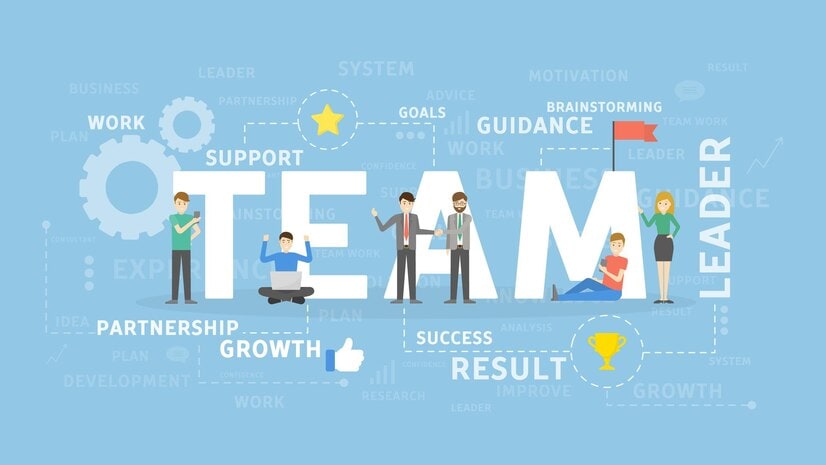Last updated on April 1, 2024 at 02:17 pm
Diversity, equity, inclusion, and belonging (DEIB) practices are not just buzzwords – they have real power to transform frontline teams and improve business outcomes. Done right, thoughtful integration of DEIB principles allows companies to better serve a diverse customer base, attract and retain top talent from all backgrounds, and foster genuine connections between coworkers. However, making meaningful change requires diligent effort over the long run.
In this post, we will explore 7 specific best practices that frontline managers and team leads can implement starting today to cultivate a more diverse, equitable, inclusive, and belonging work environment for all. These suggestions aren’t shortcuts – they demand commitment and adaptation to your unique team dynamics. But by making DEIB a conscious part of daily operations, you lay the groundwork for high performance through unity in diversity.
7 Best Practices for DEIB in Frontline Teams
According to Gallup, only 31% of workers believe their company is committed to advancing racial justice or equity in the workplace. Therefore, it is crucial to implement DEIB best practices. Some of them include:
1. Build a diverse and inclusive team
According to reports, inclusive and gender-diverse teams outperform their less inclusive counterparts by 50%. This is attributed to frontline teams that mirror their company’s user base in terms of age, gender, race, ethnicity, and cultural background, leading to enhanced customer service. To cultivate a diverse and inclusive frontline team, it’s crucial to attract and hire diverse talent. This can be achieved through the following strategies:
- Reducing unconscious biases: There are many different types of unconscious biases, and the best strategy to deal with them is to identify them when they appear and adopt preventative measures. By standardizing interview questions and providing unconscious bias training to your hiring team, you may lessen this.
- A targeted outreach program: A targeted outreach program for hiring diverse talent actively seeks out candidates from underrepresented groups through partnerships, outreach events, and targeted marketing. This approach broadens the talent pool, fosters inclusivity, and cultivates a workplace that reflects diverse perspectives and talents.
- Inclusive language: Employing inclusive language demonstrates a company’s commitment to diversity, inclusion, and belonging. By actively discouraging exclusive language and behavior, it not only reduces discrimination and bias but also promotes enhanced cooperation and communication among individuals.
2. Create a culture of belonging
Developing a sense of belonging at work is a universal desire, particularly among frontline employees. Establishing a strong sense of community among colleagues not only boosts work effort and productivity but also enhances workplace satisfaction and effectiveness. Feeling a sense of belonging can significantly improve the overall work environment, increase individual effectiveness, and make the job more enjoyable. Cultivating this feeling can be achieved through various means.
- Team-building activities are invaluable for allowing employees from diverse backgrounds or departments to learn about each other, fostering a stronger sense of belonging.
- Additionally, implementing a mentorship program demonstrates the organization’s commitment to valuing frontline employees and providing support for their professional growth.
- Moreover, respecting individual differences is essential for building a more inclusive and harmonious workplace. It involves appreciating and valuing diversity while acknowledging the unique contributions each person brings.
Celebrating diversity not only minimizes discrimination but also promotes personal development, encourages creativity and innovation, and ultimately enriches the lives of everyone in the organization.
3. Empower frontline employees
The collective strength and potential that emerge when individuals with diverse backgrounds, experiences, viewpoints, and identities unite as an inclusive community are unparalleled. Workplaces that embrace DEI practices can leverage the power of diversity, leading to innovation and progress. Empowering employees is crucial for fostering a positive and productive workplace environment. Strategies for empowering frontline employees include:
- Providing training and development opportunities: Offering frontline staff the necessary training and development opportunities ensures they feel supported and equipped to excel in their roles.
- Encouraging feedback and suggestions: Regular feedback and guidance empower frontline workers to continuously improve and perform effectively in their positions.
- Granting autonomy over their work: Empowering frontline staff with autonomy leads to increased productivity. By entrusting them with decision-making authority to address minor issues and enhance operations independently, productivity can soar.
- Employee acknowledgment and appreciation: Recognizing and appreciating achievements boosts morale and motivates frontline employees to excel. Celebrating accomplishments reinforces the significance of their contributions and fosters a culture of appreciation.
4. Promote fair and equitable treatment
Regardless of employees’ backgrounds identities, it is critical to treat every employee fairly and equally. Employees are more likely to be engaged and dedicated to their work when they believe they are receiving fair and respectful treatment. Let’s explore the strategies for promoting fair and equitable treatment at the workplace:
- Standardized performance evaluation processes: Implementing standardized evaluation processes for promotions and raises promotes fairness and equity while reducing unconscious biases in the workplace. By adhering to consistent criteria, organizations can ensure that all employees are assessed fairly based on their performance and contributions.
- Clear and unbiased promotion policies: Employers should establish clear promotion policies aimed at minimizing biases and ensuring that candidates are selected and promoted solely based on their qualifications and merit. By fostering a culture of fairness and equity, organizations can attract and retain a diverse talent pool, fostering creativity and inclusivity in the workplace.
- Promptly addressing discrimination and harassment concerns: Creating an environment where every individual feels valued, respected, and included is key to reducing the likelihood of harassment and discrimination. Employees should feel empowered to raise any concerns without fear of reprisal. To uphold fair practices, organizations must address discrimination and harassment concerns swiftly and effectively, demonstrating their commitment to maintaining a respectful and supportive workplace culture.
Biases and personal opinions are mitigated in the decision-making process through the implementation of data-driven decision-making practices and regular audits. By relying on factual data rather than assumptions or personal viewpoints, judgments become more precise and reliable. Additionally, regular audits facilitate the evaluation of hiring, promotion, and pay policies to identify and rectify any bias-related disparities.
5. Communicate openly and transparently
Being open and honest about your company’s DEIB journey is crucial. Gaining trust and responsibility requires open communication about accomplishments, obstacles, and future goals. It can contribute to the long-term retention of employees, fostering a productive workplace. Transparent and open communication builds understanding among coworkers and gives them the power to make wise decisions, all of which contribute to the success of the company. Listed below are some strategies for effective communication:
- Regular town halls: Hosting town halls regularly informs everyone about new projects and inspires them to keep moving forward. It also lets organizations discover pain points and brainstorm effective solutions promptly. It’s also the most effective approach to maintaining open communication and transparency.
- Employee surveys: Surveys help bridge the gap between frontline employees and management by providing the overall well-being and satisfaction of the workforce.
Organizations can track their progress toward establishing an equal workplace and hold themselves responsible for meeting their goals by establishing DEIB performance targets. This can help them identify bottlenecks or opportunities and work accordingly.
Also Read: Navigate Frontline Communication Challenges With These Tips
6. Collect feedback and take action
It’s imperative to get employee input on DEIB programs if you want to build a more diverse, fair, and inclusive workplace. You may strengthen your DEIB efforts and promote a culture that appreciates and respects everyone by establishing a psychologically secure workplace, utilizing a variety of feedback techniques, and taking proactive action on the feedback. Strategies for collecting feedback include:
- Anonymous surveys: Many individuals tend to withhold their honest opinions when asked to identify themselves, fearing potential repercussions or damaging relationships. Opting for anonymous feedback surveys often yields more candid responses, providing valuable insights for improvement.
- Focus groups: Conducting focus groups within the workplace can be instrumental in gathering feedback to enhance employee engagement and drive organizational growth. By facilitating open discussions among employees, valuable perspectives and suggestions can emerge to address various challenges and opportunities.
- One-on-one conversations: Regular one-on-one conversations with staff members offer valuable opportunities to gain deeper insights into their motivations, skills, limitations, and potential contributions within their teams and the organization as a whole.
7. Celebrate successes and milestones
Celebrating successes and milestones related to Diversity, Equity, Inclusion, and Belonging (DEIB) is instrumental in boosting motivation, commitment, and morale throughout the organization. Recognizing these achievements underscores the company’s dedication to transforming the workplace through DEI practices. Here are some examples of how to celebrate successes:
- Team recognition programs: Establishing team recognition programs can highlight the successes of frontline teams in implementing DEI practices. This not only strengthens the team’s commitment to the organization but also inspires other teams to champion diversity and inclusion initiatives.
- Company-wide events: Hosting company-wide events such as office parties, team retreats, awards ceremonies, or team picnics can uplift the morale of frontline employees and foster a sense of unity and appreciation within the organization.
- Public announcements: Celebrating successes and milestones can be accomplished through public announcements within the organization, whether on notice boards, websites, or social media platforms. Sharing these achievements publicly reinforces the company’s values and commitment to DEIB while encouraging continued engagement and participation from all employees.
Also Read: Best Practices for Effective Frontline Onboarding
To Sum Up
Prioritizing Diversity, Equity, Inclusion, and Belonging (DEIB) within frontline teams is not just a matter of compliance or optics—it’s about fostering environments where every individual feels valued, respected, and empowered to contribute their best. By implementing these seven best practices, organizations can cultivate cultures of equity and inclusivity that not only benefit employees but also enhance productivity, innovation, and overall success. Embracing DEIB isn’t a one-time effort but an ongoing commitment to creating spaces where diversity thrives, equity is upheld, inclusion is the norm, and everyone feels a sense of belonging.
Frequently Asked Questions
1. How can DEIB initiatives and policies be improved?
DEIB initiatives can be improved by ensuring they’re comprehensive, actionable, and regularly evaluated. This means involving diverse voices, setting measurable goals, fostering open communication, and collaborating with stakeholders for ongoing refinement.
2. What is DEIB training?
DEIB training is a structured program designed to educate individuals and organizations on issues related to diversity, equity, inclusion, and belonging in the workplace. It aims to increase awareness, foster empathy, and equip participants with the knowledge and skills needed to create more equitable and inclusive environments.
3. In what ways can technology support DEIB initiatives?
Technology can support DEIB initiatives by minimizing bias in recruitment processes and facilitating inclusive communication and collaboration among diverse teams through digital platforms and tools. Additionally, data analytics can help track diversity metrics and measure the effectiveness of DEIB efforts.
Subscribe To The theEMPLOYEEapp Newsletter
Comments are closed.




